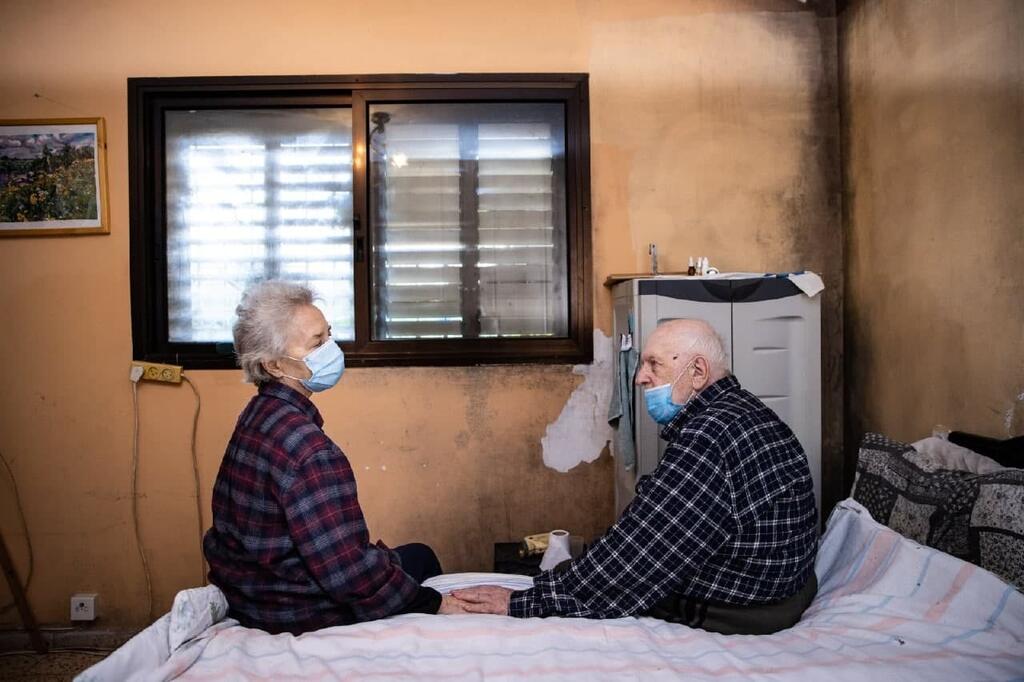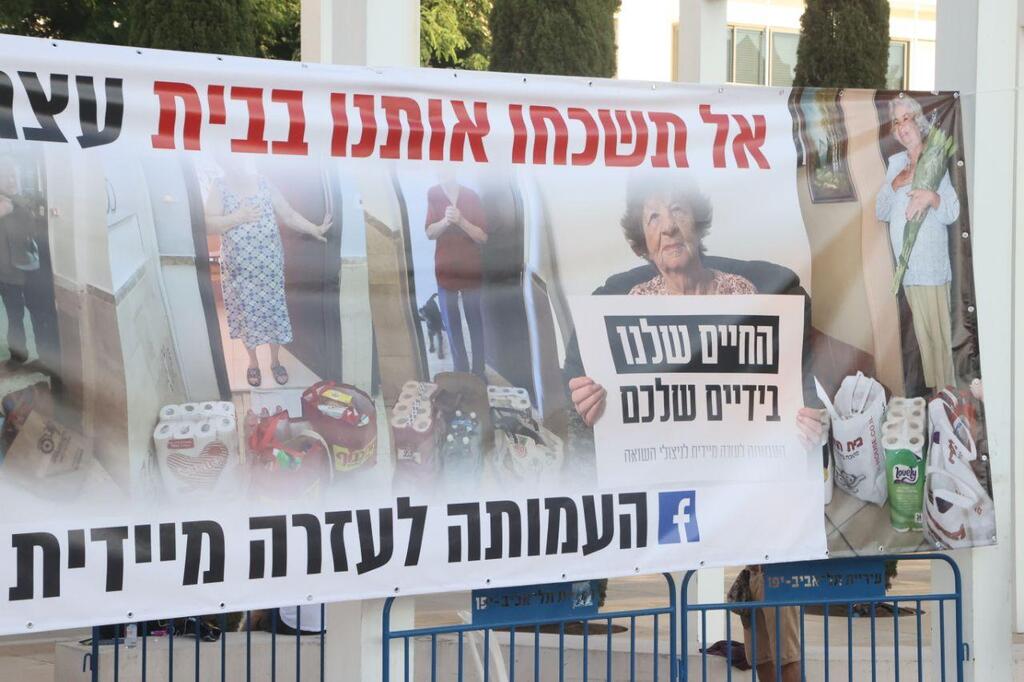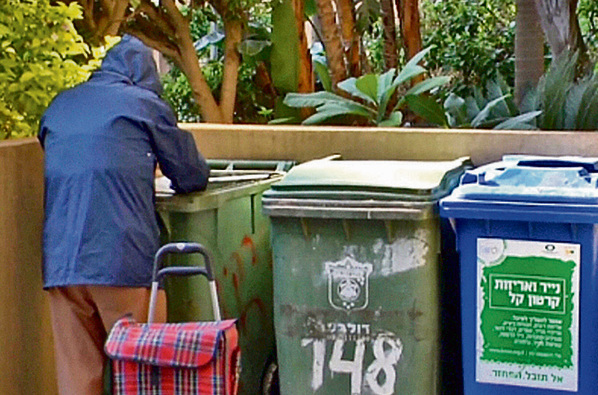The walls of Victor and Ella Urahi's apartment are covered in mold that has been building up for years. The paint on their bedroom walls peeled off a long time ago and their meager belongings can all be fitted into one small cupboard.
"We can’t afford to fix it ourselves," says Ella with a haunted look. "This is an old house and we're just breathing in mold."
3 View gallery


Victor and Ella Urahi in their home with paint peeling off mold-covered walls
(Photo: Alex Kolomoisky)
Victor, 81, is a Belarus-born Holocaust survivor who escaped the Nazis with his mother and sister until they reached northern Russia.
"We fled on foot for months and my mother did everything she could to keep us alive," he said.
Some 30 years have passed since Victor immigrated to Israel with his wife Ella, 74, and their two daughters.
They settled in Beit Shemesh with hearts filled with hope and dreams of a better life. But they soon learned that living in Israel meant compromising on some of those aspirations.
"We are both musicians," Ella says with a smile. "But when we came to Israel, I started working in a beauty salon and Victor began tuning pianos."
For decades the couple worked hard to support their family and never imagined that they would find themselves in an endless fight for survival as they entered their golden years.
3 View gallery


A protest by Holocaust survivors in Tel Aviv over the lack of help from the Israeli government
(Photo: Moti Kimchi)
About two years ago, doctors found a cancerous tumor on Ella's pancreas that she has been battling ever since, undergoing arduous chemotherapy treatments that they hope will be a cure.
But the couple cannot afford some of the accompanying therapies that may help Ella her feel better as she undergoes treatment.
"There is medicine that helps me a lot with nausea, but I am not eligible for it [through the healthcare system]. One packet of pills costs NIS 250 ($75), and I need about two a month. It comes to NIS 500 every month and we don't have that kind of money," she says.
"There's another, stronger chemo treatment for the tumor itself that costs NIS 5,000 ($1,500) and we can't pay for it - that's all the money we have for the entire month. We live off of our pensions and this money also goes to food, bills, and cabs. At the end of the month, there just isn't enough left for medicines."
The couple's two daughters try to support their parents as much as possible. One lives in Canada and the other spends as much time as she can with her mother and father.
"We do not like to complain, but we would like to be in a better position," says Ella.
"This is a small country, it is hard to help everyone. But unfortunately, a lot of money goes to people who do nothing for the country. There is no money left for health, education and social services."
Many other Holocaust survivors find themselves in a similar position to Ella and Victor, living in poverty and neglect.
Some live in hoes unfit for habitation, struggling to afford basic needs like food and medicine, and some are forced to spend their last years in abysmal loneliness.
Many of them do not even know their rights and therefore do not understand what they are entitled to.
Last month, Ynet reported that Israel appears to have failed to pay out to Holocaust survivors millions of shekels in restitution payments received from the German government.
So far, government officials say that no progress has been made on the issue with the Finance Ministry and the funds have not yet been transferred to survivors.


